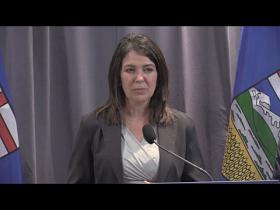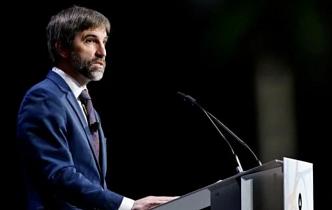Prioritizing the planet
As Muslims across the world celebrated Eidal-Fitar on 5th June, the UN celebrated World Environment Day. Since 1974, every year, the day has been marked out in an attempt to encourage awareness and actions for the protection of our environment. But the day serves as little more than a decorative piece on the shelf of our guilty conscience. By now we are very familiar with ‘save the planet’ slogans. Global warming is no longer a new concept. Yet, how many of us are willing to take out the time and put in the effort to save the planet we inhabit, or at least prevent its destruction even further?
The Blue Macaw is officially extinct; the chirpy parrot named Blu popularized by the cartoon Rio will forever be a fantasy for our future generations. Giraffes have officially been recognized as endangered species. Small humans in large numbers managed to threaten the very existence of the world’s tallest mammal. I still remember seeing giraffes chew leaves off enormous trees in Kenya as a child. The sheer height of the animal is breathtaking. Soon children will only be able to see giraffe shaped stuffed toys. According to the International Union for Conservation (IUCN), the number of giraffes has been reduced by 40% over the last 30 years.
It is expected that in the next 100 years half of the world’s animal species will become extinct. Many are being hunted in large numbers while most are dying to due to large scale deforestation and severe pollution. And Pakistan is not exempted from the consequences of these grave environmental concerns. Sindh’s pangolin has now been added to the list of our native animals under threat. The anteater is being poached for it scales which are smuggled to meet the high demands in China. One kilogram of pangolin scales can be sold for over 150 USD. Last year in October the Sindh Wildlife Department seized 16 bags filled with pangolin scales during a raid. But protecting the pangolin is a very small aspect of a much larger problem.
Increasingly our fishermen are finding dead fish entangled in plastic bags and choked on plastic caps. Indus is now the second most polluted river in the world. By 2050 it is expected that there will be more plastic than fish in the world’s seas. A significant proportion of the environmental crisis stems from our seemingly innocent everyday activities. Pakistan consumes over 55 billion plastic bags in a year according to the Environmental Protection Department. Fossil-based plastics are non-biodegradable and can thus remain in the environment for up to 1,000 years. At the same time we are tearing down our forests faster than anyone else in Asia. According to a report by WWF,61,000 hectares of forest land have been converted to non-forest use since 1947. If deforestation continues at this rate, experts have warned that Pakistan will run out of forests within the next 50 years. But does it all matter?
Pakistan consumes over 55 billion plastic bags in a year according to the Environmental Protection Department. Fossil-based plastics are non-biodegradable and can thus remain in the environment for up to 1,000 years. At the same time we are tearing down our forests faster than anyone else in Asia
If the plants and animals continue to vanish, eventually the entire ecosystem will collapse. An Australian think-tank, Breakthrough National Centre for Climate Restoration, has already set the beginning of the end of human civilization as 2050. So something needs to be done. But in a country where violence against children and women is on the rise, the former Prime Minister is sitting in jail, and the electricity bills just keep growing, protecting the environment is not a thought that often crosses a citizen’s mind. When the issue does come under discussion, the immediate reaction seems to be pointing fingers at the government-be it federal or provincial. All responsibility is dumped upon the government. But do we as citizens owe nothing to a land we call home?
Governments (federal and provincial) no doubt should put measures in place which will help Pakistan prosper for they are elected for that very purpose. Protecting the environment comes under this umbrella. Subsequently, KPK has banned the use of plastic bags and Prime Minister Imran Khan is forever encouraging citizens to plant trees. Perhaps the initiative can be strengthened by the government enacting a legislation compelling citizens to plant trees as has recently been done in Philippines. A new Filipino law requires all students to plant 10 trees in order to graduate.
But why does it always have to be the carrot or the stick? Why can we not proactively take some responsibility ourselves, without laws compelling us to? I have often seen people sitting in cars pull down their windows and throw trash on to the streets. Time and again I have faced the same ridiculous argument: ‘What difference will it make, everyone does it.’ But every droplet makes an ocean. The government can keep cleaning but the beaches will always be filthy if we continue to litter. If you can use the dustbins in London and Dubai why leave the parks and stadiums in your own country littered with trash? Why not plant a tree? Why not refuse using plastic spoons and cups? Why not put your grocery in a reusable bag made of cloth?
Individuals and corporations seeking to make a change can have an immense impact even if the governments fail to act. Some local businesses have recently adopted more environment-friendly practices and their efforts are laudable. Espresso, a famous coffee house chain in Pakistan, has switched to recycled paper straws instead of plastic straws. Why can’t others follow suit? Last year the clothing store Sapphire introduced environment-friendly biodegradable bags which were infused with plant seeds. These bags could be buried in soil and watered to grow plants. Why can’t other brands in Pakistan work to promote such environment friendly practices? A little effort by each individual can go a long way. We can prevent the planet from being destroyed further. We just need to get our priorities right.














